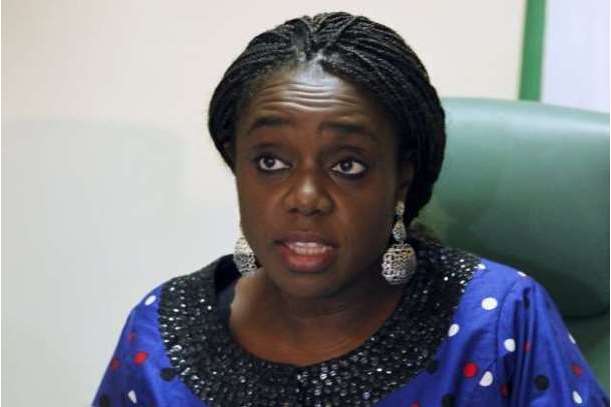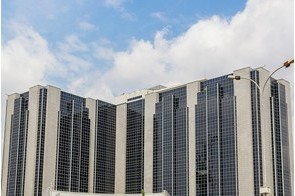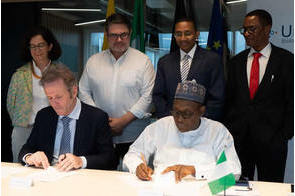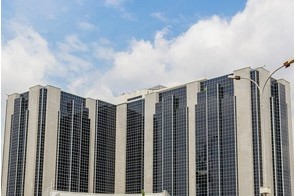Latest News
Fitch downgrades Nigeria to B+ on weak economic policy response

News Highlight
- The ratings agency said Nigeria’s interbank forex market will not be fully flexible as it allows for a parallel market for the importers of the 41 banned items.
Fitch Ratings said on Thursday that it has downgraded Nigeria’s long-term foreign currency issuer default rating (IDR) from BB- to B+, with a stable outlook.
The move comes a couple of months after Moody’s, another ratings agency, downgraded Nigeria’s long-term sovereign issuer rating by one notch from Ba3 to B1.
Fitch said the key drivers of its ratings downgrade are Nigeria’s worsened fiscal and external vulnerabilities caused by a sharp drop in oil revenues as well as a weak policy response from the government to mitigate the impact of low global oil prices.
“Renewed insurgency in the Niger Delta in [first half of 2016] has lowered oil production, magnifying pressures on export revenues and limiting the inflow of hard currency,” the ratings agency said.
Fitch said it noted that the Nigerian government has adopted a fiscal adjustment strategy centred around raising non-oil revenues. The ratings agency further noted that the country has made some progress in raising tax revenues by improving revenue collection and strengthening control over revenue generated by government departments and state-owned enterprises.
However, despite the expected increase in non-oil revenues, Fitch said it expects overall government revenue to drop to 5.5 percent of GDP, from an average of 12 percent between 2011 and 2015.
On the expenditure side, the ratings agency noted that Nigeria has cut fuel subsidies and adopted several public financial management reforms that have contained the growth in recurrent expenditure. These policy measures include the adoption of the Treasury Single Account and the implementation of information systems that have reduced the number of ghost workers.
Nevertheless, Fitch said it forecasts Nigeria's general government fiscal deficit to grow to 4.2 percent in 2016 before narrowing in 2017, after averaging 1.5 percent from 2011 to 2015.
The ratings agency said Nigeria's low level of general government debt, which is forecast to be about 14 percent of GDP in 2016, is well below peer countries and constitutes a rating strength.
Fitch, however, said it estimates that the fall in general government revenue will cause Nigeria’s debt-to-revenue ratio to rise to 259 percent in 2016, from 181 percent in 2015.
According to Fitch, Nigeria’s weak policy response to fallen oil revenue has led to an increase in external vulnerabilities, slower GDP growth, and a widening of the current account deficit.
The ratings agency stated that Nigeria’s recently announced, but much-delayed, interbank foreign exchange market will not be fully flexible as it permits the existence of a parallel market for the importers of the 41 banned items. This new system, in Fitch’s view, will continue to hinder growth, capital inflows, and investment.
According to Fitch, Nigeria’s GDP growth will fall to 1.5 percent in 2016, down from 2.7 percent in the previous year, following 0.4 percent year-on-year GDP contraction in the first quarter of this year.
“[Second quarter 2016] is likely to experience a further contraction, as the resurgence of violence in the Niger Delta has brought oil production levels down to around 1.5 million barrels per day (mbpd) in May, from approximately 2.1 mbpd in January,” the ratings agency said.
On Nigerian banks, Fitch said its best case scenario is that their total capital ratios will not decline significantly despite the effective devaluation of the naira because of strong profitability and high levels of internal capital generation.
“The new FX regime crucially also provides access to US dollars for the banks to meet demand and their internal and external obligations,” Fitch said.
Related News
Latest Blogs
- AML/CFT regulations and data protection require balance in regulating cryptocurrency
- It's time for honest discussions on Nigeria's security architecture
- Driving economic growth through green transition in Nigeria
- CBN is fighting inflation instead of stagflation
- Why electricity privatization failed (2)
Most Popular News
- IFC, partners back Indorama in Nigeria with $1.25 billion for fertiliser export
- CBN increases capital requirements of banks, gives 24 months for compliance
- Univercells signs MoU with FG on biopharmaceutical development in Nigeria
- CBN settles backlog of foreign exchange obligations
- Ali Pate to deliver keynote speech at NDFF 2024 Conference
- Euromonitor forecasts Sub-Saharan Africa GDP to grow to $4.5trn by 2040






